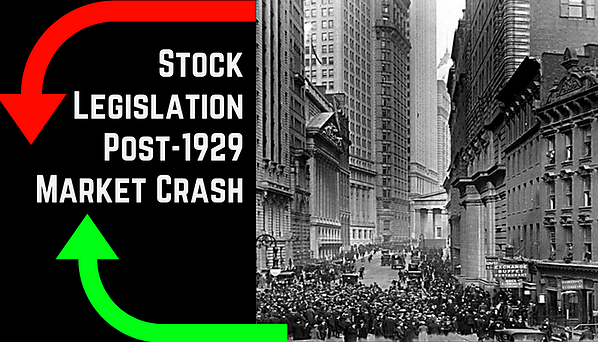
While we have referred to 1929 as one of the most devastating times in US history, it should be noted that quite a lot of good came out the other side when it come to governing the stock market and keeping consumers protected. Many of these are acts passed by Congress that are still applicable today. Since they were passed far before many of my readers can even remember, I thought it would be important and useful to introduce these acts that continue to keep investors safe, even 80 years later:
The Securities Act of 1933
As a direct result of the 1929 market crash, this was the first major legislation regarding the sale of securities. Prior to this legislation, the sales of securities were primarily governed by state laws. The legislation addressed the need for better disclosure by requiring companies to register with the Securities and Exchange Commission. Registration ensures companies provide the SEC and potential investors with all relevant information by means of the prospectus and registration statement.
The Securities Exchange Act of 1934
This act was created to govern securities transactions on the secondary market, after issue, ensuring greater financial transparency and accuracy and less fraud or manipulation. The SEA authorized the formation of the Securities Exchange Commission (SEC), the regulatory arm of the SEA. The SEC has the power to oversee securities, such as stocks, bonds and over-the-counter securities, markets and the conduct of financial professionals including brokers, dealers and investment advisers, and monitor the financial reports that publicly traded companies are required to disclose. All companies listed on stock exchanges must follow the requirements set forth in the Securities Exchange Act of 1934. Primary requirements include registration of any securities listed on stock exchanges, disclosure, proxy solicitations and margin and audit requirements. The purpose of these requirements is to ensure an environment of fairness and investor confidence.












Leave A Comment